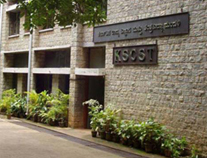


 |
 |
 |
|
|
||||||||||||||||||||||||||||||||||||||||||||||||||||||||||||||||||||||||||||||||||||||||||||||||||||||||||||||||||||||||||||||||||||||||||||||||||||||||||||||||||||||||||||||||||||||||||||||||||||||||
|
Trainers' Training Programme
on
Sustainable Rainwater Harvesting and
Programme - II
29th January to 3rd February
2012 Organised by
Trainers' Training Programme on
"Sustainable Rainwater Harvesting
and
29 January to
-
3
February 2012
1. Introduction Water is an essential daily need across all cross-sections of the
society. With the ever-increasing population, migration of vast multitudes of
rural population to metros and urban areas and development of industrial towns,
the developing countries are facing great pressure on the existing
infrastructure on conventional water supply systems and severe constraints on
financial and material resources. Municipal water supply in most cities is
unreliable and many villages in the developing countries do not have potable
water supply. The developing countries often neglect the most proven and
sustainable methods of decentralized water collection and usage systems and instead,
the centralized mega projects take the center stage and private players in
these countries are encouraged to adopt unsustainable methods of water
withdrawal and supply chain without any control and effective regulations on
the quality of water supplied. To provide sustainability, the traditional
methods of water harvesting and usage methods need to be revived and if
required, modified to suit the present day requirement. Rainwater Harvesting
(RWH), which is seemingly an ideal sustainable solution, entails the collection
of rain in a scientific and controlled manner for future use and consists of
roof top water harvesting, water from open areas such as paved ways, parks,
roads, fields and in lakes and ponds.
To address the above
issues, a collaborative project entitled Sustainable Rainwater Harvesting and
Ground Water Recharge in 2.
The
Training course To complement the efforts being made by the Department of Science and Technology (DST), Ministry of Science and Technology, Government of India, under its Winning, Augmentation and Renovation (WAR) for Water Technology Mission, the Karnataka State Council for Science & Technology (KSCST) announce the organisation of a Trainers' Training Programme on "Sustainable Rainwater Harvesting and Ground Water Recharge in India" during 18 - 23 September 2011 at Bangalore. A tentative programme of the training course is given below:
3. Venue The Trainers' Training Programme will be held at NIAS, Indian Institute
of Science, 4. Resource Persons Resource persons for the training programme will comprise eminent
experts from various institutions, Individuals and corporate sector. 5. About the
Organisers
5.1 KSCST The Karnataka State Council for Science and Technology (KSCST;
www.kscst.org.in or www.kscst.iisc.ernet.in) was established in 1975
as a registered society to liaise and to play a catalytic role amongst others
in promoting the application of Science and Technology in the developmental
needs, objectives and goals of Karnataka and in particular to the prevailing
conditions of backwardness, rural unemployment and poverty. The KSCST is the
first council to be setup in the country to fulfil the felt need of bringing
together administrators, field level officers in various government
departments, scientists and technologists in research laboratories and research
institutions. With a view to develop technologies appropriate to and in harmony
with the ecological conditions, the Council has been catalyzing interaction
between developers and users of technologies, by bringing together scientists
and engineers on the one hand and policy makers as well as administrators on
the other. Over the last 35 years, KSCST has completed several projects in
various sectors like Energy, Environment, Building Technology, Agriculture,
Information Technology, Health, Rural Industry and Water.
5.2 Department
of Science & Technology (DST) Department of Science & Technology (DST; www.dst.gov.in) was established in May 1971, with the objective of promoting new areas of Science & Technology and to play the role of a nodal department for organising, coordinating and promoting S&T activities in the country. The Department has major responsibilities for specific projects and programmes that include: Formulation of policies relating to Science and Technology; Promotion of new areas of S&T with special emphasis on emerging areas; providing support for R&D; Coordination and integration of areas of S&T having cross-sectoral linkages; Undertaking or financially sponsoring S&T surveys, research design and development; Support and grants-in-aid to scientific research institutions, scientific associations and bodies; Matters concerning Science & Engineering Research Council, Technology Development Board, National Council for S&T Communication, National S&T Entrepreneurship Development Board, and International S&T Cooperation; Matters commonly affecting S&T departments/organisations/ institutions on financial, personnel, purchase and import policies and practices; Management Information Systems for S&T; Matters regarding Inter-Agency/Inter-Departmental coordination for evolving S&T missions; Application of S&T for weaker sections, women and other disadvantaged sections of Society; etc.
Technology
6. Participants The training programme has been primarily designed for the field experts and water technicians nominated by State Science and Technology Councils and representatives of the concerned organizations and government authorities in states and union territories, 30 professionals would be selected to attend the training. A pre-condition for consideration for
selection for the training programme is that the participants should not only
be the field experts in RWH & GWR practices as evidenced by their CV, but along
with their Nomination Form they should also submit a tentative future plan of
action, which they intend to implement in their respective states after getting
trained from the training programme.
-*
Abstract of
Trainers' Training Programme
on
Sustainable Rainwater Harvesting and
Ground
Water Recharge in Click on this link for details...
-*
| ||||||||||||||||||||||||||||||||||||||||||||||||||||||||||||||||||||||||||||||||||||||||||||||||||||||||||||||||||||||||||||||||||||||||||||||||||||||||||||||||||||||||||||||||||||||||||||||||||||||||
|
|
||||||||||||||||||||||||||||||||||||||||||||||||||||||||||||||||||||||||||||||||||||||||||||||||||||||||||||||||||||||||||||||||||||||||||||||||||||||||||||||||||||||||||||||||||||||||||||||||||||||||
|
This page was updated on : Tuesday, November 15, 2011 12:38 PM |
||||||||||||||||||||||||||||||||||||||||||||||||||||||||||||||||||||||||||||||||||||||||||||||||||||||||||||||||||||||||||||||||||||||||||||||||||||||||||||||||||||||||||||||||||||||||||||||||||||||||
| Copyright 2011, All Rights Reserved |